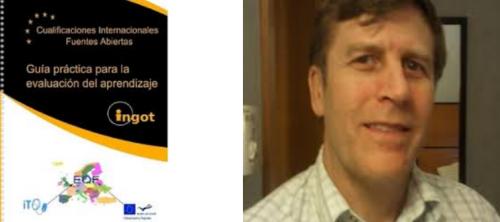INGOTs: a software certification that rewards children helping other people
The International Grades in Office Technology (INGOTs) is a system for certifying IT capability. This article explains what is unique in the INGOTs, their current status and how to join the program, through an interview with INGOTs founder Ian Lynch.
Update October 27th, 2017: I discovered ONLY today that Ian Lynch passed away in 2015. To contact INGOTs, please use directly their website)

INGOTs is a software-related certification which is deeply different from the European Computer Driving License (ECDL) and does not compete with it. The first difference is cost: ECDL starts at about 50/60 Euro, INGOTs certificates at less than two. Then there is the age range: ECDL primarily targets teenagers and adults, INGOTs are suited to children as young as six years.
The crucial differences, however, are in the goal and in the organization. INGOTs are earned through registered centers called Academies, which can be schools or other institutions. Even if there is a central structure, INGOTs Academies are much easier to start and integrate in the activities of any school or grassroots group.
A goal unique to INGOTs is to not just teach notions, but to promote active citizenship, community service and good practices. INGOTs rewards students who make a valuable public contribution in an area of their interest. As an example, INGOTs students must demonstrate an understanding of the principles of Free, Open Source software, and the Gold INGOTs certification requires several hours of community service, for example contributing in some way to the OpenOffice.org project (read the Linux.com article to know more about INGOTs and Free software).
According to Lynch, INGOTs are good for teachers because give valid motivation to students and, unlike other projects, “they don’t just put online a lot of unconnected resources. INGOTs intends to develop a coherent, nationally accredited certification and sustain a free, high quality curriculum on-line for all."
Stop: How do you plan to do this?
Ian: By enabling the community to participate in resource development - at least in part by teaching them how - and selling certification for those that want official, independent endorsement of their learning. If we can get many people certificated at low cost, eventually low cost learning will be available online for everyone.
Stop: What are the latest news from INGOTs?
Ian: We are close to finishing INGOTs 2.0! This revision brings the INGOTs in line with the UK National Occupational Standards for IT Users, the European Qualifications Framework and the UK Schools National Curriculum. Besides, we have just started an EU Transfer of Innovation project with a grant for 276,000 Euro with partners in Bulgaria, Romania, Czech Republic and Spain.
Stop: What are the goals of this project?
Ian: To put online support to the INGOT qualifications, under Creative Commons licenses, so that the courses are free for all learners. Initially content will be in the languages of the partner countries, but we will apply for further grants to cover other languages. We are in talks with the largest Teacher training University in Malaysia who intend to take up the INGOT qualifications across all their staff. And we are currently looking for partners in other EU countries.
Stop: What should one do to start INGOTs in a new country?
Ian: Contact me (ian.lynch at theingots.org), so we can discuss together what scope there is. Next, I have to train the person as an Assessor trainer so they can then provide training for others. They then need some sort of organisation with IT facilities, so they can support the learning that is needed to meet the INGOT criteria. Once this is done they can get started.
Stop: What happens next, and why?
Ian: As they gain experience they can become a regional moderation center and manage the quality assurance for new centers. INGOTs is designed to scale from grass roots but provide peer reviewed, very unexpensive quality assurance procedures. That should enable us to get certification for groups previously excluded and provide sufficient revenue on large numbers to support and sustain the free on-line supporting content for all to use.
Who writes this, why, and how to help
I am Marco Fioretti, tech writer and aspiring polymath doing human-digital research and popularization.
I do it because YOUR civil rights and the quality of YOUR life depend every year more on how software is used AROUND you.
To this end, I have already shared more than a million words on this blog, without any paywall or user tracking, and am sharing the next million through a newsletter, also without any paywall.
The more direct support I get, the more I can continue to inform for free parents, teachers, decision makers, and everybody else who should know more stuff like this. You can support me with paid subscriptions to my newsletter, donations via PayPal (mfioretti@nexaima.net) or LiberaPay, or in any of the other ways listed here.THANKS for your support!